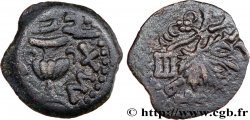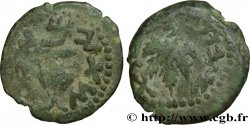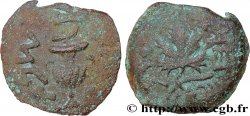正面
正面的文字 INSCRIPTION HÉBRAÏQUE, "SHEKEL D'ISRAËL".
正面的说明书 Calice surmonté de la date.
背面
背面的文字 INSCRIPTION HÉBRAÏQUE, "JÉRUSALEM LA SAINTE".
背面的说明书 Trois grenades sur une tige.
历史细节
JUDAEA - FIRST REVOLT
(66-70)
After the death of Herod the Great (37 - 4 BC. J. -VS. ), a silent struggle is engaged by the Jews against the introduction of foreign cults and against those who collaborate with the Roman occupier. After the disastrous management of Antonius Felix, brother of Pallas, Judea revolted against the Romans. Nero appointed Vespasian to quell the revolt which was to last four years. In 67, the armed revolt broke out and surprised the Roman troops who suffered setbacks until the arrival of Vespasian, appointed by Nero imperial legate in charge of repression at the head of three legions. A certain Joseph, commanding one of the Jewish armies, resists in the citadel of Jotapata. Taking refuge in a cave with about forty notables, he escapes their collective suicide, surrenders and predicts the empire to Vespasian. The prediction came true two years later, in 69. The prisoner is then freed and according to Roman custom takes the name of his protector (Flavius): he is now Flavius-Joseph, a precious historian of the war of which he is an actor (ambiguous) and a witness (not very objective). Vespasian, having become emperor, entrusts the command to his eldest son and faithful lieutenant Titus, who - in 70 - burns Jerusalem, loots and destroys the Temple (of which only the Western Wall remains, known as the "Wailing Wall"). This considerable event is at the origin of the Diaspora which was to last almost 1. 900 years. It is the end of the war of the Jews, even if the fortress of Masada resists until 73. Vespasian and Titus celebrate their victory with a common triumph, in June 71.







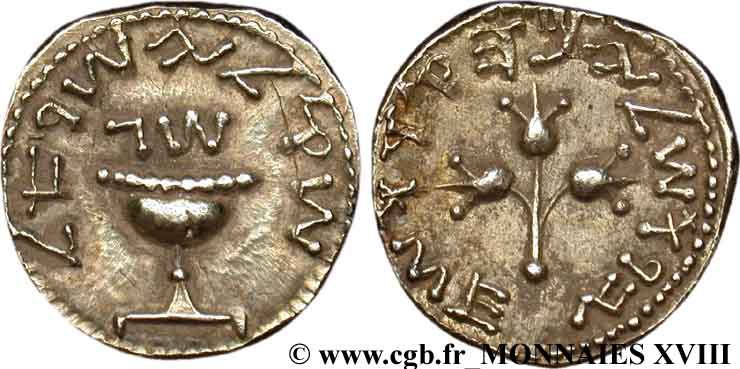
 对产品描述纠错
对产品描述纠错 打印
打印 分享我的选择
分享我的选择 提问
提问 Consign / sell
Consign / sell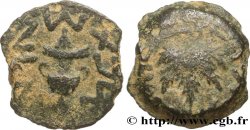
 产品介绍
产品介绍